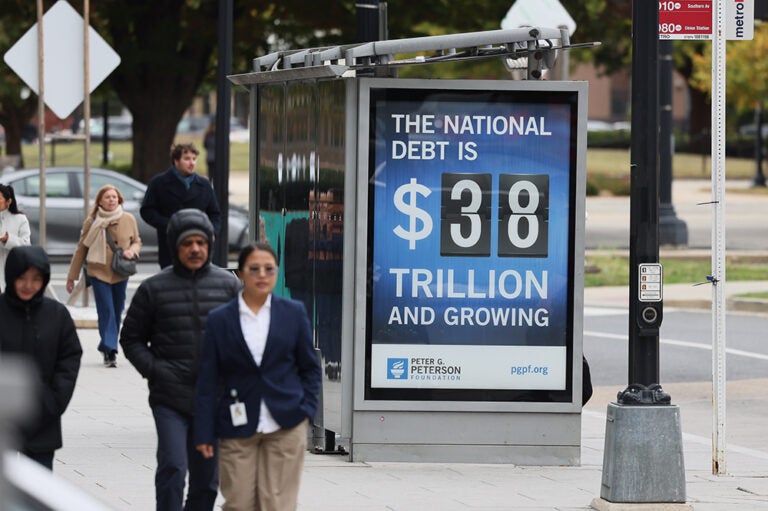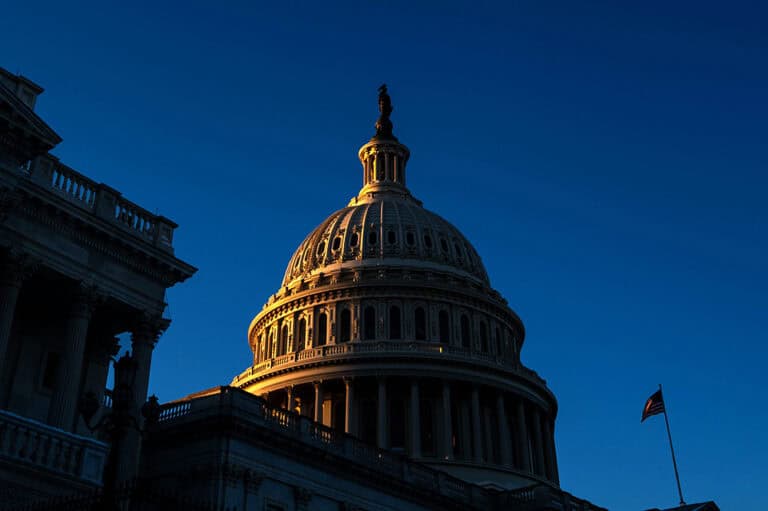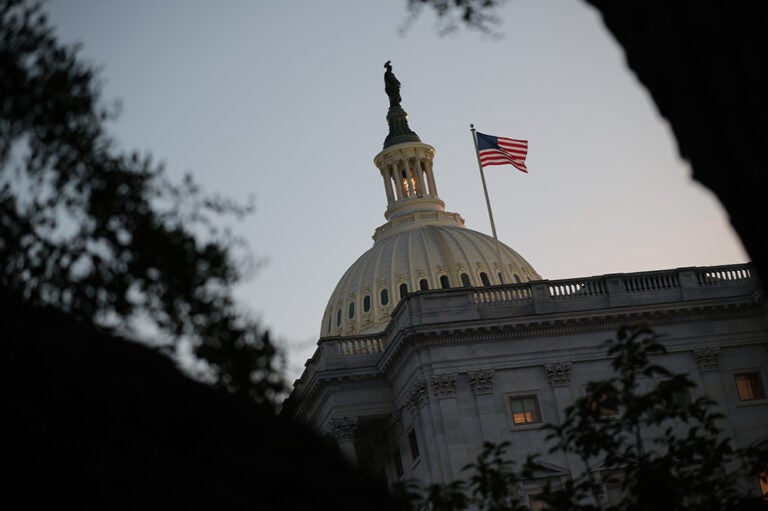Top Economists Don’t See Immediate Recession; Share Concerns on Inflation, Interest, and Debt
Two of America’s top economists said Monday that while the U.S. faces a complex mix of fiscal and economic challenges, they don’t see an immediate threat of recession — and any downturn is likely to be relatively mild.
During the Peterson Foundation’s latest Economic Forum, William C. Dudley, 10th President and CEO of the Federal Reserve Bank of New York, and Nela Richardson, Chief Economist of ADP, discussed a range of timely topics, offering their insights and solutions on inflation, rising interest costs, the national debt, and the policy landscape under likely divided government in 2023.
Recession Risks
Dudley highlighted the competing factors at play as the Federal Reserve works to lower inflation to its 2% target, while moderating the impact on unemployment. Timing will be critical, Dudley said, noting that if unemployment rises, the Fed will then have the ability to correct by lowering rates.
“I don’t expect a recession in the very near term, but I do think that a recession is highly likely if the Fed Reserve is actually going to be successful in bringing inflation back down to 2%,” he said. “The good news is that if we do have a recession, it's probably going to be pretty mild. If we have a recession, I don't think a lot of things in the financial system are going to break like they did during the great financial crisis.”
Richardson acknowledged a near-term recession concern, but said her larger worry was achieving sustainable, broad-based growth over the medium and longer terms. She said fiscal stimulus cannot be a backup for growth, deployed during every recession to make up for the difference between expansion and retraction.
A potential recession “is not the biggest risk,” she said. “Having this slow growth economy that doesn't grow enough for population increases — that's what I'm most concerned with and that contributes directly to productivity and the tax base.”
She emphasized that the federal government can and should use fiscal tools to improve productivity and workforce participation over the long term.
The Looming Debt Ceiling
Lawmakers will soon have to deal with the debt ceiling, whether during this year’s “lame duck” period before the end of the year, or sometime next year when the issue becomes more urgent.
Both Dudley and Richardson favor eliminating the debt limit, which has been raised 89 times since 1959 and is expected to be reached early next year.
Richardson called it “dysfunctional” as a policy tool because it has been ineffective in improving fiscal health, and presents a significant economic risk.
“Reasonable people would agree that not raising the debt ceiling would be a fiasco globally that would reverberate around the world for years, maybe even decades,” she said. “So why even play this game of chicken every couple of years? There’s no reason for it in terms of risk management.”
Dudley agreed, saying the problem is the debt ceiling “has had no success in focusing attention on controlling budget deficits.”
“I think we need to make the case about why the government's pockets are not unlimited; why the budget deficits are likely to expand very sharply in the coming years, both from debt service cost and from higher entitlement spending,” he said. “And the money may be harder to come by than it has in recent years.”
Inflation Has Probably Peaked
Both Richardson and Dudley said inflation has probably peaked, but the Federal Reserve still has a lot of work to do, despite already raising interest rates significantly this year.
Richardson expects inflation to be more persistent than it has been in the past.
“Perhaps” inflation has peaked, she said. “There are encouraging signs that it has or will soon. But I think it's really important to imagine a new world where we don't go back to [prolonged low] interest rates and inflation. She said it’s possible that we have “entered into a new world of inflation where those drivers that kept inflation low have lost some of their power."
Dudley warned that lowering inflation will be a long, slow process.
“There's still plenty of inflation pressure out there,” he said. “We still have an inflation problem. If the labor market is too tight, wages are then high and those wage inflation numbers are inconsistent with 2% inflation.”
Richardson expressed her concerns that as monetary tools are used to lower inflation, the impacts on the labor market will disproportionately affect vulnerable populations.
“Where we’ve seen the highest wage growth, it’s for low-pay jobs. Where we’ve seen the highest gains in jobs, it’s been for service-sector, consumer-facing jobs that were lost during the pandemic,” she said. “These are jobs where women are overrepresented in and minorities are overrepresented in and low-income households are overrepresented in. For this overall macro gain, some parts and the most-vulnerable parts of the labor force are going to feel the effects more than others.”
The Fiscal and Economic Outlook
Dudley and Richardson said rising interest rates and costs present a significant risk and clear reason for policymakers to start addressing the unsustainable budget outlook.
Dudley said the danger of a fiscal crisis comes when the bond market balks or demands even greater interest payments.
“Short-term interest rates,” he said, will likely rise to 5%, “and that means debt service costs are going to pile up very, very rapidly over the next few years…The combination of higher debt service cost and higher entitlement spending means, to me, that we're on a pretty bad trajectory. We're running a budget deficit of about 5% of GDP. That's not a great place to be, so I do think that this is going to go from being a non-problem to probably a pretty big problem pretty quickly.”
Absent action, Richardson sees a world in the next decade or two where fiscal policy is “captive” to short-term interest rate fluctuations.
“We're heading into a space where targeted fiscal policy, and I'm going to use that word specifically, targeted, is probably going to be a difference maker in terms of recession and growth,” she said. “If that targeted fiscal policy is hampered by the servicing cost of the debt on the other side, then it's a world where we have these big problems but have fewer tools or limited power in order to get through downturns. How do you reverse that trajectory?”
Both economists urge leaders to focus policymaking and budget decisions on public investment, which is on a sharp 50-year decline, rather than consumption. They agreed that overdue capital investments for infrastructure, broadband, workforce training and education, addressing climate change, and research and development can grow the economy faster and generate greater revenues for national priorities, emergency preparedness and debt stabilization. They also noted that increased immigration could bolster the nation’s workforce and revenue base.
While both pushed for policies that boost economic growth and productivity as a means to improve the fiscal outlook, they also pointed to structural solutions to fix Social Security. For example, Dudley cited options to raise the Social Security income tax exemption level, reduce benefits for higher-income Americans, or extend the retirement age.
“I'd like to think we get action sooner rather than later, because sooner you act, the less you have to do to actually put Social Security on a sustainable footing,” Dudley said.
Richardson said lawmakers’ failure to address the impending exhaustion of the Social Security trust fund is a huge problem.
“A decade from now is not that far away when you think about how we are going to have to support an increasingly older population with a workforce where the average workforce participation level has still not recovered from the pandemic,” she said. “We've had this trend of prime-age workers leaving the labor market. We have a slowdown in immigration. What is the mechanism by which this increased fiscal burden is actually going? Whose back is it going to fall on?”
Image credit: Getty Images
Further Reading
What Is the National Debt Costing Us?
Programs that millions of Americans depend on and care about may be feeling a squeeze from interest costs on our high and rising national debt.
Interest Costs on the National Debt Are Reaching All-Time Highs
The most recent CBO projections confirm once again that America’s fiscal outlook is on an unsustainable path — increasingly driven by higher interest costs.
New Report: National Debt Outlook Gets Worse as Interest Costs Exceed $1 Trillion Annually
A new CBO report shows that the national debt outlook worsened from last year’s projections.


